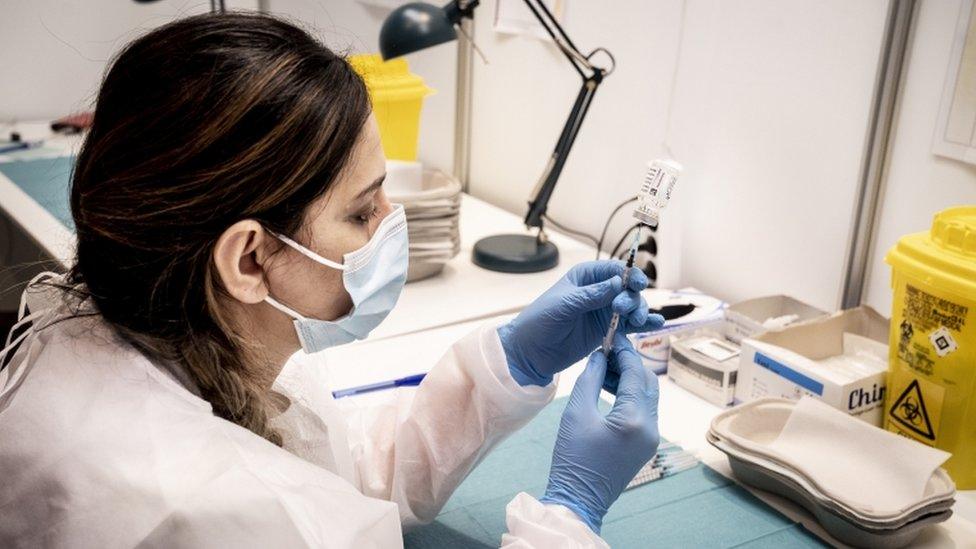Covid-19: Netherlands suspends use of AstraZeneca vaccine
- Published
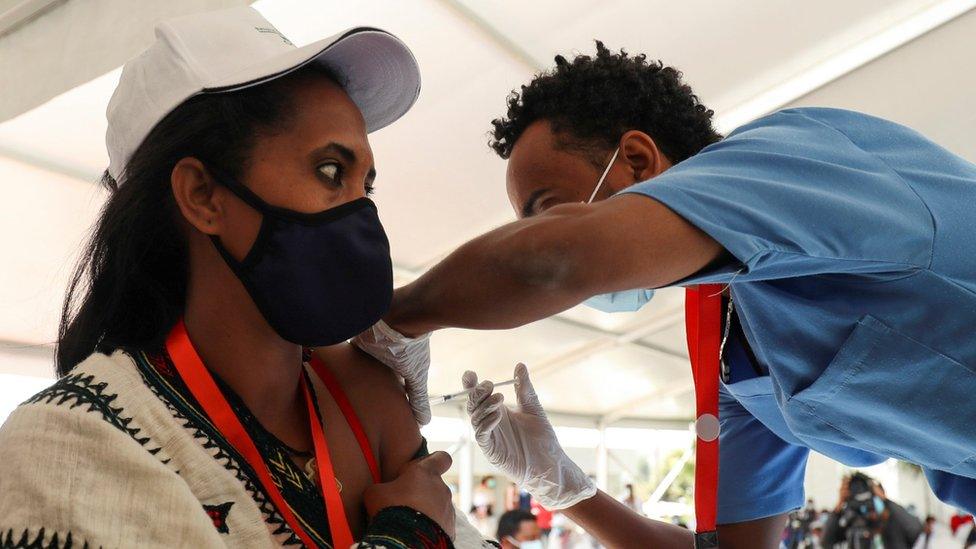
The WHO says there is no reason to stop using the vaccine
The Netherlands has become the latest country to suspend use of the Oxford-AstraZeneca coronavirus vaccine over concerns about possible side effects.
The World Health Organization (WHO) and the European Medicines Agency (EMA) say there is no indication of a link between the vaccine and reports of blood clots.
Eight countries have so far fully suspended the AstraZeneca vaccinations.
The WHO told Reuters it was important that vaccination campaigns continued.
"It is normal for countries to signal potential adverse events. This does not mean that the events are linked to vaccination but its good practice to investigate them," the agency was quoted as saying.
About 17 million people in the EU and the UK have received a dose of the vaccine, with fewer than 40 cases of blood clots reported as of last week, AstraZeneca said.
Experts say the number of blood clots reported after the vaccine were no more than those typically reported within the general population.
The Dutch government said its suspension, which will last until at least 29 March, was a precaution.
The Irish Republic, Denmark, Norway, Bulgaria and Iceland have paused inoculations with the vaccine, while the Democratic Republic of Congo and Indonesia have delayed the start of their AstraZeneca rollouts. Several European countries, including Italy and Austria, have suspended the use of certain batches of the drug as a precautionary measure.
Thailand announced that it would start using the vaccine on Tuesday, following a brief delay to the rollout over safety concerns.
The EMA - which is currently carrying out a review into incidents of blood clots - said the vaccine could continue to be administered.
The UK medicines regulator also said evidence "does not suggest" the jab causes clots, as it urged people in the country to get the vaccine when asked to do so.
Professor Andrew Pollard, director of the Oxford vaccine group which developed the Oxford-AstraZeneca jab, told the BBC's Today programme there was "very reassuring evidence that there is no increase in a blood clot phenomenon here in the UK, where most of the doses in Europe [have] been given so far".
Finland has also done a "very careful study" and not found an increased risk, he added.
He said it was "absolutely critical that we don't have a problem of not vaccinating people".

No evidence of a link

While vast numbers of people are being vaccinated at pace around the world, some of them will still get sick with other things unrelated to the vaccine.
These pauses for the AstraZeneca vaccine are not because it is unsafe to give. It's to allow time for experts to explore why a small number of people who were recently given the shot also developed blood clots.
When an illness occurs shortly after vaccination, it is right to question whether the shot might have contributed in any way.
There is no indication or evidence, however, that the vaccine was linked or responsible.
In the UK, more than 11 million people have already received at least one dose of the AstraZeneca vaccine and there has been no sign of excess deaths or blood clots occurring. Europe's drug regulator has also backed the vaccine, saying its benefits are clear. Covid can be deadly and vaccination saves lives.

What measures did the Dutch government take?
In a statement, the Dutch government said it was acting out of precaution following reports from Denmark and Norway of possible serious side effects.
Dutch drug watchdog Pharmacovigilance Centre Lareb later said that 10 cases of possible adverse side effects had been reported in the Netherlands, according to Reuters news agency.
"We can't allow any doubts about the vaccine," Health Minister Hugo de Jonge said. "We have to make sure everything is right, so it is wise to pause for now."
Speaking on an early morning talk show on Monday, Mr de Jonge said he hoped the suspension would last "no longer than a couple of weeks", adding: "We need vaccines to be able to put this nasty period behind us".
Sunday's decision will now cause delays in the Dutch vaccination programme.
The authorities had pre-ordered 12 million doses of AstraZeneca, with nearly 300,000 jabs scheduled in the next two weeks.
What did AstraZeneca say?
It said there was no evidence of an increased risk of clotting due to the vaccine.
It said that across the EU and United Kingdom there had been 15 events of deep-vein thrombosis (DVT) - a blood clot in a vein - and 22 events of pulmonary embolism - a blood clot that has entered the lungs - reported among those vaccinated.
The front-line doctor photographing the pandemic
AstraZeneca said these figures were "much lower than would be expected to occur naturally in a general population of this size and is similar across other licensed Covid-19 vaccines".
"The nature of the pandemic has led to increased attention in individual cases and we are going beyond the standard practices for safety monitoring of licensed medicines in reporting vaccine events, to ensure public safety," Ann Taylor, the firm's chief medical officer, said.
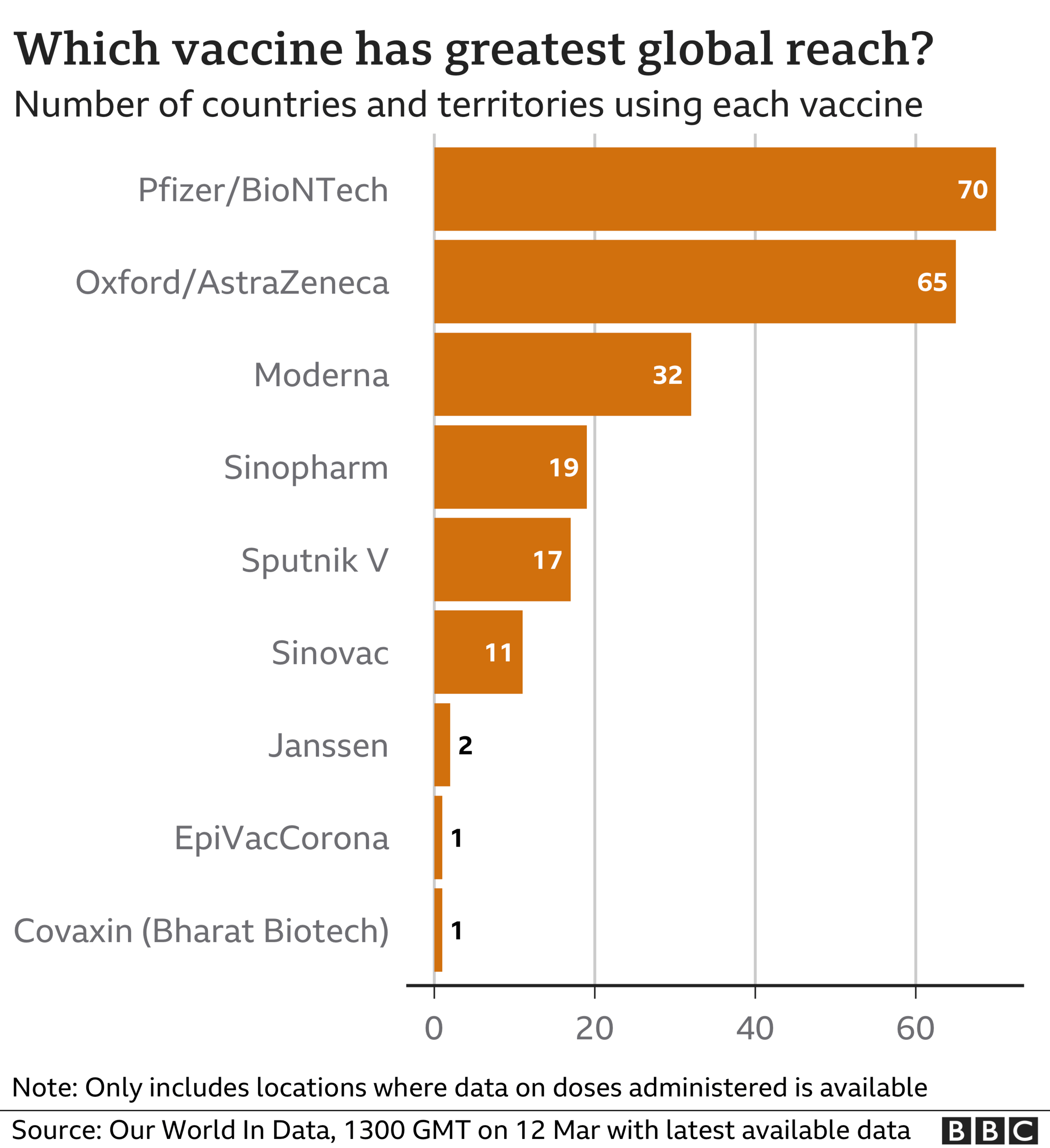


EASY STEPS: How to keep safe
A SIMPLE GUIDE: What are the symptoms?
SOCIAL DISTANCING: How can I meet my friend safely?
HEALTH MYTHS: The fake advice you should ignore
MAPS AND CHARTS: Visual guide to the outbreak

Related topics
- Published15 February 2022
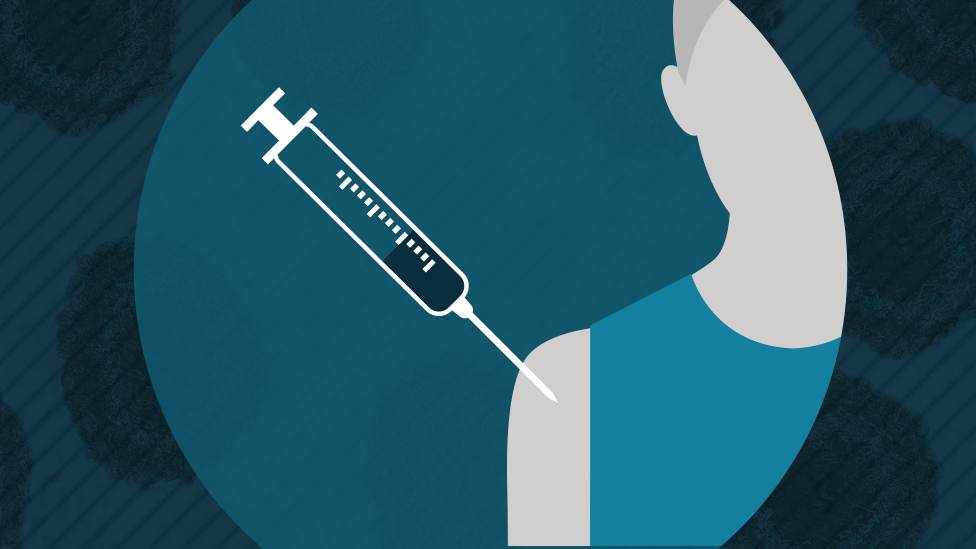
- Published26 January 2021
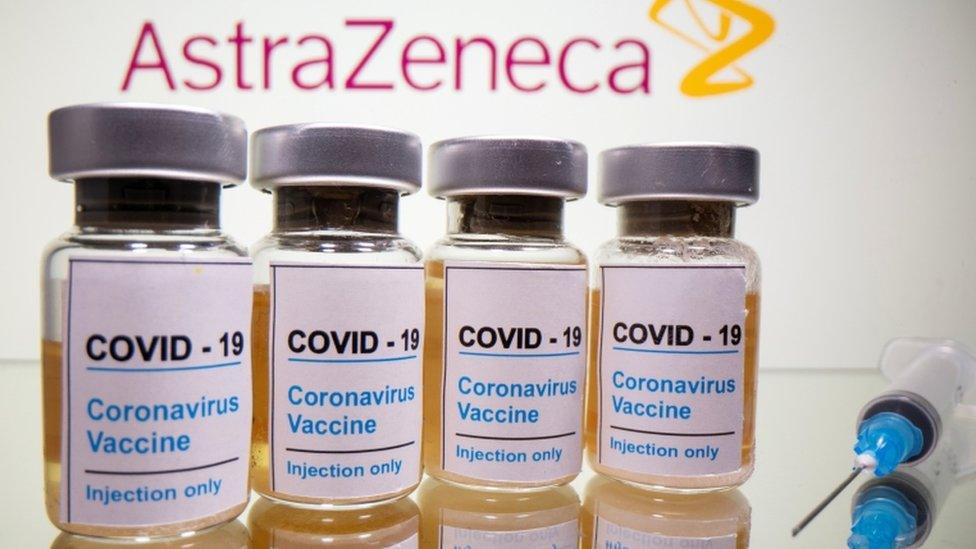
- Published11 March 2021
